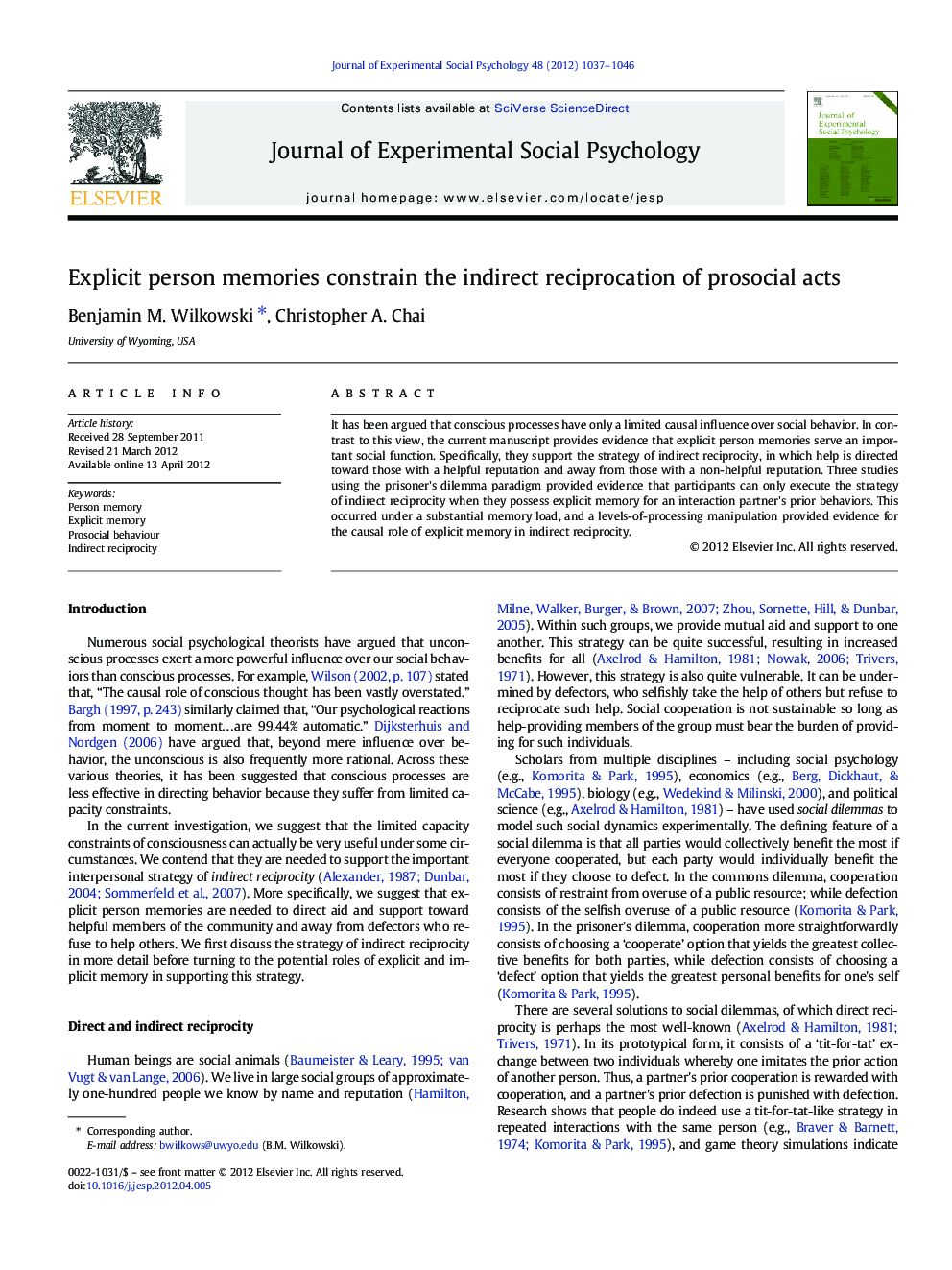| Article ID | Journal | Published Year | Pages | File Type |
|---|---|---|---|---|
| 948038 | Journal of Experimental Social Psychology | 2012 | 10 Pages |
It has been argued that conscious processes have only a limited causal influence over social behavior. In contrast to this view, the current manuscript provides evidence that explicit person memories serve an important social function. Specifically, they support the strategy of indirect reciprocity, in which help is directed toward those with a helpful reputation and away from those with a non-helpful reputation. Three studies using the prisoner's dilemma paradigm provided evidence that participants can only execute the strategy of indirect reciprocity when they possess explicit memory for an interaction partner's prior behaviors. This occurred under a substantial memory load, and a levels-of-processing manipulation provided evidence for the causal role of explicit memory in indirect reciprocity.
► Prominent theories contend that conscious processes have little effect on behavior. ► We contend that explicit memory is needed to support indirect reciprocity. ► In 3 studies, explicit person memories constrained indirect reciprocity. ► An experimental manipulation supported the causal role of explicit memories.
